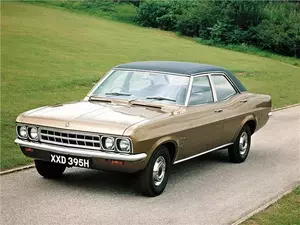
| Vehicle | Precise engine size | Difference from world average | Engine size to consumption ratio | Horsepower from 1 L | Engine size to 100 kg of weight |
|---|---|---|---|---|---|
| 1800 |
1.76 L (1759 cc) |
25% smaller | - | 44 hp from 1 L | 147 cc to 100 kg |
| 2300 |
2.28 L (2279 cc) |
2.9% smaller | - | 54 hp from 1 L | 190 cc to 100 kg |
| Vehicle | 1800 |
|---|---|
| Precise engine size | 1.76 L (1759 cc) |
| Difference from world average | 25 smaller |
| Engine size to consumption ratio | - |
| Horsepower from 1 L | 44 hp from 1 L |
| Engine size to 100 kg of weight | 147 cc to 100 kg |
| Vehicle | 2300 |
| Precise engine size | 2.28 L (2279 cc) |
| Difference from world average | 2.9 smaller |
| Engine size to consumption ratio | - |
| Horsepower from 1 L | 54 hp from 1 L |
| Engine size to 100 kg of weight | 190 cc to 100 kg |

| Vehicle | Precise engine size | Difference from world average | Engine size to consumption ratio | Horsepower from 1 L | Engine size to 100 kg of weight |
|---|---|---|---|---|---|
| 1800 |
1.76 L (1759 cc) |
25% smaller | - | 44 hp from 1 L | 147 cc to 100 kg |
| 2300 |
2.28 L (2279 cc) |
2.9% smaller | - | 54 hp from 1 L | 190 cc to 100 kg |
| Vehicle | 1800 |
|---|---|
| Precise engine size | 1.76 L (1759 cc) |
| Difference from world average | 25 smaller |
| Engine size to consumption ratio | - |
| Horsepower from 1 L | 44 hp from 1 L |
| Engine size to 100 kg of weight | 147 cc to 100 kg |
| Vehicle | 2300 |
| Precise engine size | 2.28 L (2279 cc) |
| Difference from world average | 2.9 smaller |
| Engine size to consumption ratio | - |
| Horsepower from 1 L | 54 hp from 1 L |
| Engine size to 100 kg of weight | 190 cc to 100 kg |

| Vehicle | Precise engine size | Difference from world average | Engine size to consumption ratio | Horsepower from 1 L | Engine size to 100 kg of weight |
|---|---|---|---|---|---|
| 2000 |
1.98 L (1975 cc) |
15.8% smaller | - | 44 hp from 1 L | 180 cc to 100 kg |
| 1600 |
1.6 L (1599 cc) |
31.8% smaller | - | 45 hp from 1 L | 145 cc to 100 kg |
| Vehicle | 2000 |
|---|---|
| Precise engine size | 1.98 L (1975 cc) |
| Difference from world average | 15.8 smaller |
| Engine size to consumption ratio | - |
| Horsepower from 1 L | 44 hp from 1 L |
| Engine size to 100 kg of weight | 180 cc to 100 kg |
| Vehicle | 1600 |
| Precise engine size | 1.6 L (1599 cc) |
| Difference from world average | 31.8 smaller |
| Engine size to consumption ratio | - |
| Horsepower from 1 L | 45 hp from 1 L |
| Engine size to 100 kg of weight | 145 cc to 100 kg |

| Vehicle | Precise engine size | Difference from world average | Engine size to consumption ratio | Horsepower from 1 L | Engine size to 100 kg of weight |
|---|---|---|---|---|---|
| 3300 |
3.29 L (3294 cc) |
40.4% bigger | - | 38 hp from 1 L | 299 cc to 100 kg |
| Vehicle | 3300 |
|---|---|
| Precise engine size | 3.29 L (3294 cc) |
| Difference from world average | 40.4 bigger |
| Engine size to consumption ratio | - |
| Horsepower from 1 L | 38 hp from 1 L |
| Engine size to 100 kg of weight | 299 cc to 100 kg |